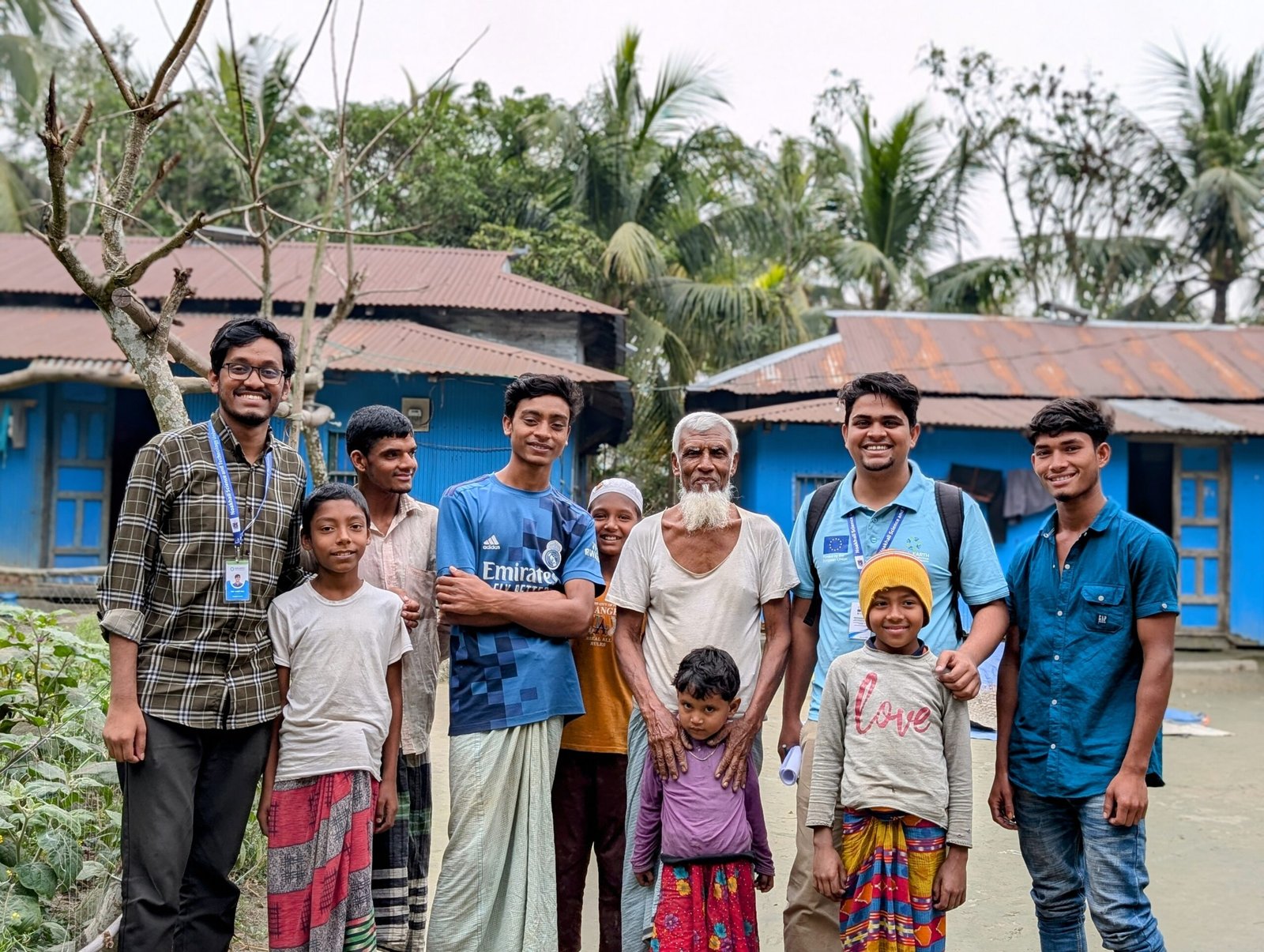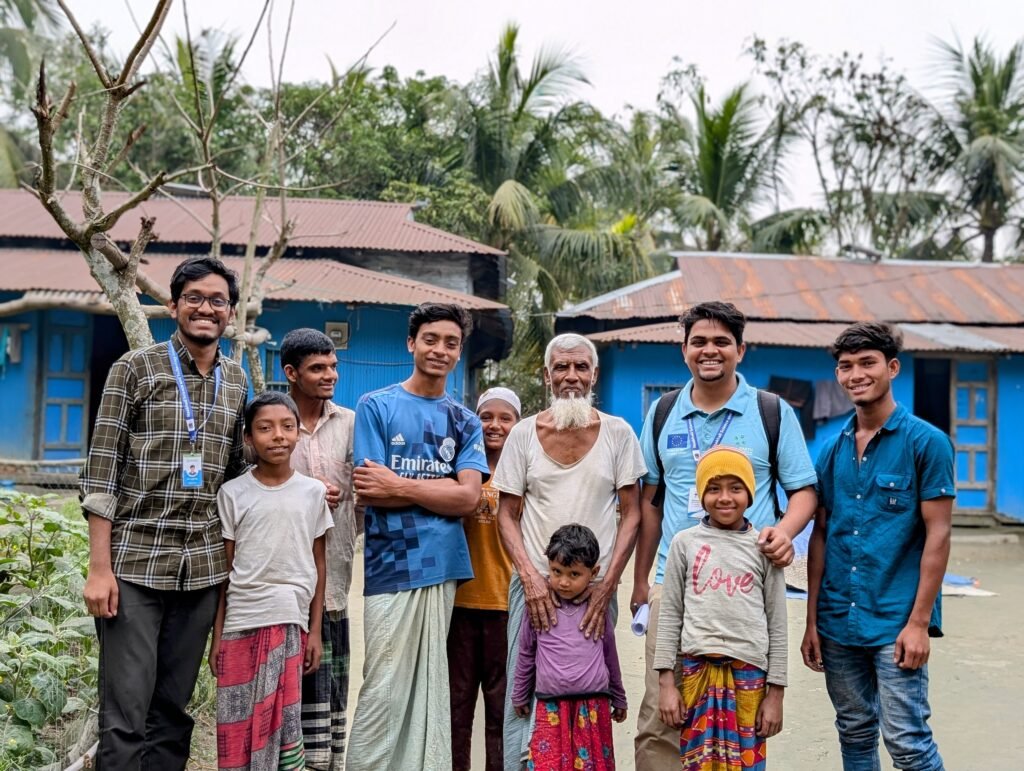The Noakhali Science and Technology University (NSTU) team has successfully completed a comprehensive data collection drive in several remote villages of Hatiya upazila. The fieldwork, conducted between September and November 2024, covered four key communities in Harni Union: Tankir Samaj, Centerer Samaj, Foraji Gram, and Shariatpur Gram.
The data collection focused on a wide range of issues, including environmental conditions, public health, agricultural practices, climate change impacts, and social dynamics. The NSTU field team comprised three dedicated interns and one experienced enumerator, who worked closely with local residents to ensure accurate and inclusive data gathering.
Utilizing both digital and traditional tools, the team employed the mobile-based Kobo Toolbox application alongside paper questionnaires to reach 197 respondents from 60 families. This mixed-method approach allowed for efficient and reliable data capture, even in areas with limited connectivity.
The primary objective of this initiative was to collect baseline data and assess current practices related to planetary health in these vulnerable communities. Early findings suggest significant variations in environmental awareness, health behaviors, and climate adaptation strategies among the surveyed families.
The NSTU team’s efforts mark an important milestone in the CATA Earth project’s mission to empower climate-vulnerable regions of Bangladesh through evidence-based education and action.












